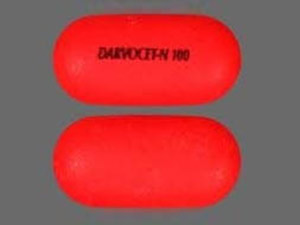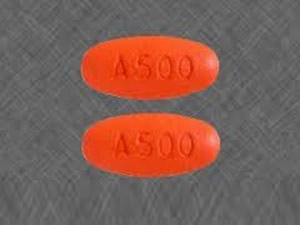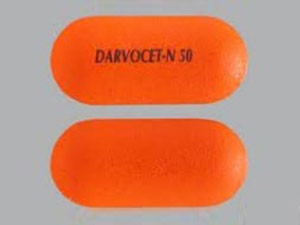Category
- Buy Adderall Online
- Buy Adipex Online
- Buy Alprazolam Online
- Buy Ambien Online
- Buy Ativan Online
- Buy Carisoprodol Online
- Buy Clonazepam Online
- Buy Codeine Online
- Buy Darvocet Online
- Buy Demerol Online
- Buy Diazepam Online
- Buy Dilaudid Online
- Buy Fioricet Online
- Buy Gabapentin Online
- Buy Hydrocodone Online
- Buy Hydromorphone Online
- Buy Klonopin Online
- Buy Lexapro Online
- Buy Lorazepam Online
- Buy Lorcet Online
- Buy Lortab Online
- Buy Meridia Online
- Buy Methadone Online
- Buy Modafinil Online
- Buy Norco Online
- Buy Opana ER Online
- Buy Oxycodone Online
- Buy Oxycontin Online
- Buy Percocet Online
- Buy Phentermine Online
- Buy Roxicodone Online
- Buy Soma Online
- Buy Suboxone Online
- Buy Subutex Online
- Buy Tapentadol Online
- Buy Tramadol Online
- Buy Valium Online
- Buy Viagra Online
- Buy Vicodin Online
- Buy Xanax Online
- Buy Zolpidem Online

Deals & Discounts
Use Coupon Code
SAVE10
Category: Buy Darvocet Online
Showing all 3 results
Buy Darvocet Online
Darvocet is a potent combination drug that consists of propoxyphene and acetaminophen. Propoxyphene belongs to the narcotic (opioid) pain reliever category. At the same time, acetaminophen is a fever reducer and a less potent pain reliever that increases the pain-relieving effects of propoxyphene. People buy Darvocet online to get relief from mild to moderate pain with or without fever.

Some individuals even purchase Darvocet online for purposes not enlisted in any medication guide. Darvocet can cause addiction (physical and psychological dependence), so take it precisely as prescribed.
Warnings
Darvocet is a habit-forming drug, and one should not use it without a proper medical prescription. Keep the medicine bottle in a secure place where others cannot reach it.
Do not take Darvocet if you have been recently taking an MAO inhibitory such as isocarboxazid (Marplan), furazolidone (Furoxone), selegiline (Eldepryl, Emsam), phenelzine (Nardil), rasagiline (Azilect), or tranylcypromine (Parnate). Severe, life-threatening adverse effects can occur if you take Darvocet before the MAO inhibitor has left your body.
Since Darvocet belongs to FDA pregnancy category C, it is unclear whether it is harmful to an unborn baby or not. There have been reports of breathing problems, addiction, and withdrawal symptoms in a newborn whose mother took this drug during pregnancy.
The components of Darvocet can pass through the breast milk and may harm your nursing infant. So, no do take Darvocet without consulting your medical healthcare professional if you are breastfeeding a nursing baby.
Things to do before taking Darvocet
Before taking Darvocet, have a proper medical check-up to ensure you are not allergic to propoxyphene or acetaminophen (Tylenol). Also, inform your health expert if you have been taking an MAO inhibitor such as:
- furazolidone (Furoxone)
- isocarboxazid (Marplan)
- rasagiline (Azilect)
- phenelzine (Nardil)
- tranylcypromine (Parnate)
- selegiline (Eldepryl, Emsam, Zelapar)
Before taking this medication, ensure that your medical healthcare professional is aware of your medical history, especially if you have ever had:
- interrupted breathing during sleep, asthma, or other severe breathing disorders;
- a past of injury to the head or brain tumor;
- liver or kidney disease;
- a gallbladder or pancreas disorder;
- suicidal thoughts or behavior;
- a stomach or intestinal disorder; or
- mental illness, or substance use disorder (history of drug or alcohol addiction)
Tell your medical healthcare professional if you consume more than three alcoholic beverages in a day or have ever had cirrhosis (alcoholic liver disease). You may not be able to take Darvocet or any other medications that contain acetaminophen.
Tips to take Darvocet: Dosage and Administration
Doctors prescribe Darvocet to relieve pain ranging from mild to moderate levels. Your healthcare professional may adjust your Darvocet dosage individually according to the severity of pain, patient medicinal condition, and initial response.
Darvocet (propoxyphene napsylate and acetaminophen) 100 (650 mg acetaminophen and 100 mg propoxyphene napsylate): The usual adult dosage is one tablet within 4 hours orally as required for pain. The maximum amount of this drug should not exceed six tablets per day.
Darvocet (acetaminophen and propoxyphene napsylate) 50 (325 mg acetaminophen and 50 mg propoxyphene napsylate): The usual adult dosage is two Darvocet-N tablets every 4 hours as required for pain. One should not take more than 12 tablets per day.
Healthcare professionals should carefully monitor the patients receiving propoxyphene and any CYP3A4 inhibitor for an extended duration and should make dosage adjustments as per the medical requirement.
Darvocet Overdose
An overdose of Darvocet can cause death. Darvocet overdose symptoms may include:
- nausea, extreme drowsiness,
- dark urine,
- vomiting,
- pinpoint or dilated pupils,
- jaundice (yellowing of the skin or eyes),
- seizure (convulsions),
- confusion,
- cold or clammy skin,
- weak pulse,
- blue lips,
- shallow breathing,
- slow or uneven heart rate,
- fainting, or breathing that stops
What are the side effects of Darvocet?
An allergic reaction may occur due to Darvocet, and the signs may include hives, problems concerning breathing, swelling of your lips, tongue, face, or throat. Severe side effects of Darvocet may include:
- chest pain, feeling short of breath;
- slow heartbeat, shallow breathing, feeling like you might pass out;
- seizure (or convulsions);
- confusion, unusual thoughts or behavior;
- stomach pain, nausea, dark urine, itching, jaundice, clay-colored stools
Common or less severe side effects of Darvocet may include:
- headache, blurred vision;
- feeling dizzy or drowsy;
- dry mouth; or
- vomiting, mild nausea, upset stomach, constipation
What are possible Darvocet drug interactions?
Darvocet may interact with other drugs, like every other medicine. Cold or allergy medicine, muscle relaxers, sleeping pills, seizure medication, or antidepressants can add to sleepiness due to propoxyphene or could slow down your breathing. You need to inform your health expert if you regularly take these drugs or any other narcotic (opioid) medications.
You should tell your medical healthcare professional if you use other medications, especially:
- birth control pills;
- aspirin or any blood thinner such as warfarin (Coumadin);
- John’s wort;
- a diuretic or water pill such as furosemide (Lasix);
- dexamethasone (Hexadrol, Decadron);
- a barbiturate, including phenobarbital (Solfoton);
- antifungal medication such as voriconazole (Vfend), fluconazole (Diflucan), ketoconazole (Nizoral), or itraconazole (Sporanox);
- heart or blood pressure drug such as diltiazem (Cartia, Cardizem), amiodarone (Cordarone, Pacerone), verapamil (Covera, Isoptin, Calan, Verelan), nifedipine (Procardia, Nifedical), propranolol (Inderal), and others;
- seizure medications such as lamotrigine (Lamictal), carbamazepine (Carbatrol, Tegretol), phenytoin (Dilantin), and others; or
- HIV or AIDS treatment such as fosamprenavir (Lexiva), ritonavir (Norvir), nelfinavir (Viracept), zidovudine (Retrovir), and others
The list as mentioned above is not complete, and other interactions may also occur. So, tell your medical healthcare professional about all the over-the-counter (OTC) medications and prescription drugs you use. It includes vitamins, herbs, minerals, and drugs prescribed by other doctors or pharmacists. Do not start taking a new medication without prior consultation with the doctor.



